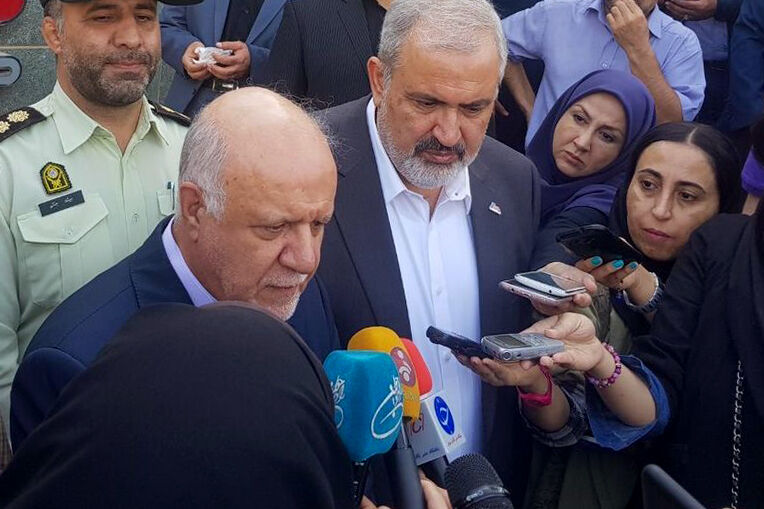In July 2017, National Iranian Oil Company (NIOC) signed a contract with a consortium of Total, CNPC International and Petropars to develop the offshore project in Persian Gulf waters.
Following US’s withdrawal from the Iran nuclear deal back in May 2018 and imposition of new sanctions and restrictions for foreign companies working in Iran, Total pulled out of the contract.
On Sunday, Mr. Zangeneh told reporters that CNPC International had also exited the project, meaning that Petropars would deal with the project alone.
“The fate of the South Pars Phase 11 has been determined and Petropars will continue developing the project alone and by the end of the this [Iranian calendar] year (to March 20, 2020), the first jacket will be installed in the phase for a platform with 500 mcf/d of gas production capacity,” Zangeneh said during a visit to MAPNA Group’s turbine workshop near Tehran.
He further said that the issues concerning the pressure booster platform in the project would depend on the ongoing talks between MAPNA and other companies.
Asked why the project was not initially awarded to Petropars Co., Zangeneh said: “We had intended to attract foreign capital for developing the project, besides the fact that the pressure booster platform was very important for us and Petropars was supposed to learn from other companies in the consortium.”
Asked whether CNPC International had pulled out of the project, he said: “Yes. It is no longer in the project.”
22-year friendship with Saudi Minister of Energy
Zangeneh said he dropped by his Saudi counterpart in Moscow. “I told him had been friends for 22 years; a friendship which had outlived all the ups and downs in Iranian-Saudi relations, and that I had no trouble meeting with him.”
He further said that Iran had not instigated any disputed with Saudi Arabia and wanted to be friends with everyone in the region. “They must not regard us as enemy; the enemy is outside of the region.”
The Iranian Minister of Petroleum said he also met with almost all the oil and energy ministers of the Gas Exporting Countries Forum (GECF) in Moscow, besides Russian companies.
Asked about ceding the National Iranian Drilling Company, he said the company had long been listed for cession but currently there were no plans for ceding it.
Visiting MAPNA Workshop
He said MAPNA was the symbol of national technology, adding, right from its establishment, the company's capital was human resources and empirical capacity, and was able to do a great job for Iran's power plant by relying on these factors.
He also welcomed MAPNA's presence in the oil sector, and stated that today there were talks with the CEO of MAPNA. "I expect MAPNA to step in the high-tech oil services sector which is currently owned by two international companies.”
"The company can also help us operate and repair rotary machinery," the minister said, noting that MAPNA had made good progress in manufacturing rotary machinery, which are at the heart of the oil industry.
Zangeneh continued: “I see MAPNA's future very bright and I hope it will reach new peaks in the development of national technology and bring more pride to the Islamic Republic of Iran, engineers, specialists and workers.”
Asked whether the Iranian Ministry of Petroleum had prioritized development in addition to selling oil, the minister said: "When we sell oil, we can accelerate and boost development, too; we are an extrovert organization, but we must also be endogenous.”
Zangeneh continued: “Being endogenous means awarding most of the work to the domestic resources and taking the opportunity to develop domestic industries and technology and knowledge-based units inside the country.”
He further said preparations for developing Farzad B gas field were ongoing while at the same time talks were continuing with Indian companies in this regard.
According to Mr. Zangeneh, gasoline export was continuing normally.
The Iranian Minister of Petroleum said currently 9 metropolitan areas used Euro-4 gasoline for fueling in the country.


Your Comment